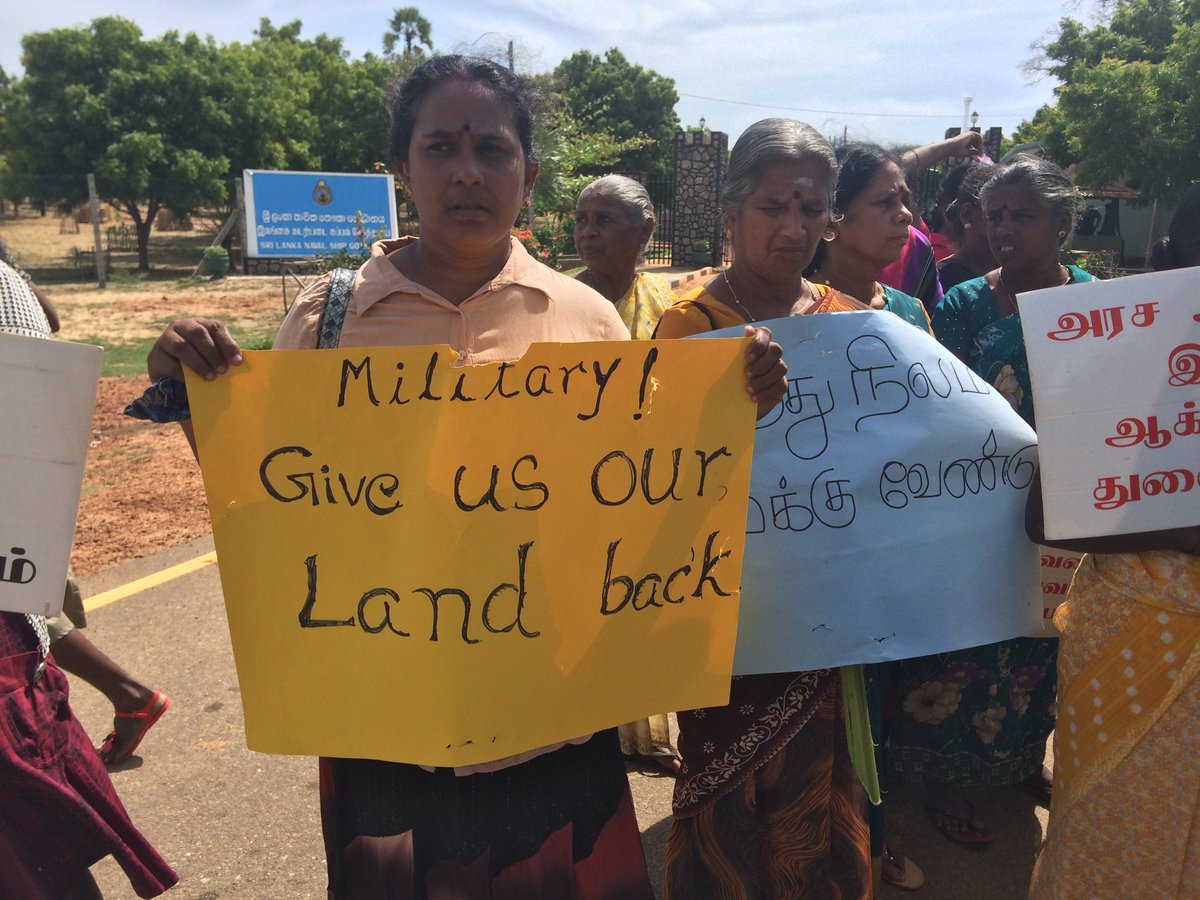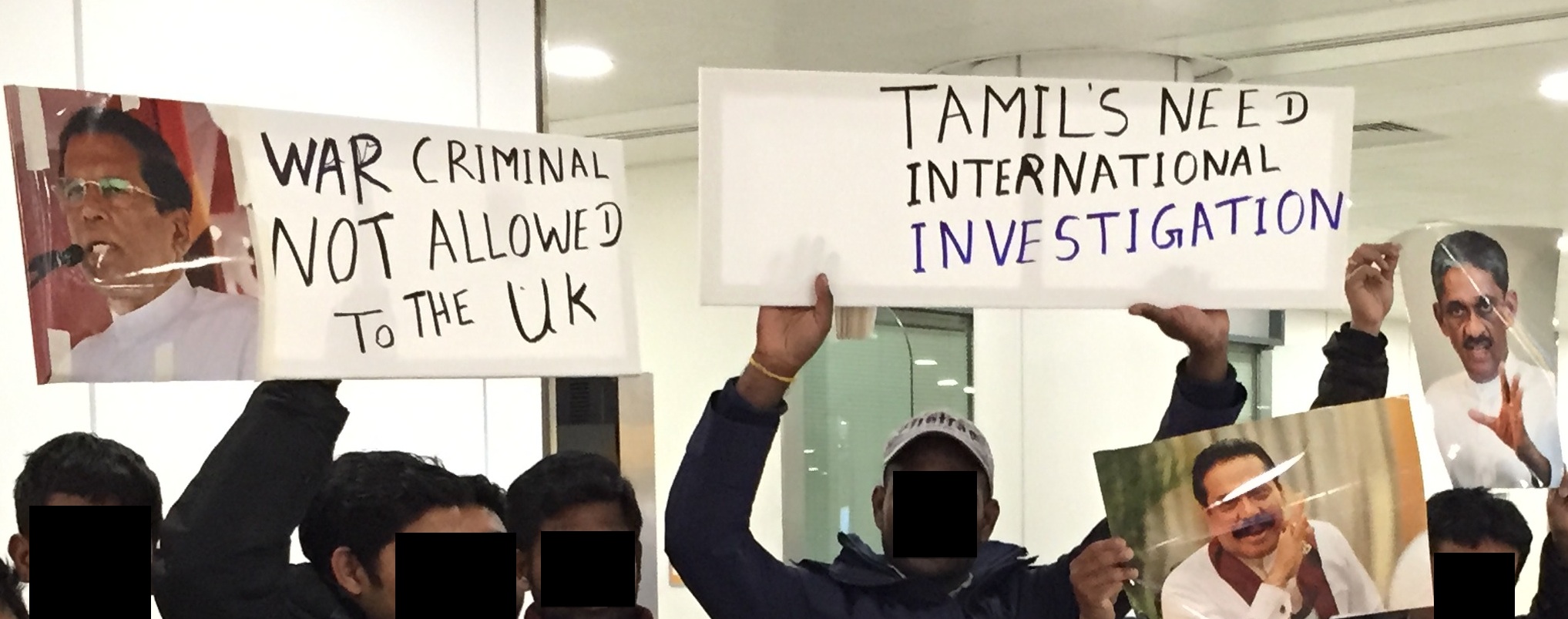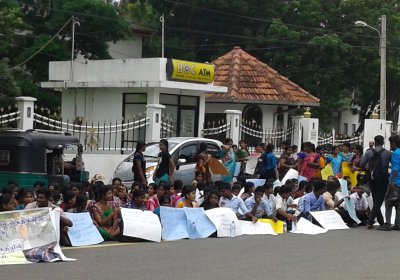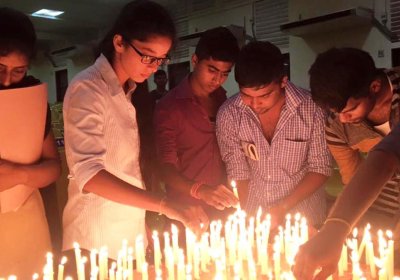The situation for Tamils in Sri Lanka is likely to worsen, writes Chris Slee, after the Sri Lanka Peoples Front, a right-wing alliance headed by Prime Minister Mahinda Rajapaksa, won 145 seats in Sri Lanka's 225 member legislature in the August 5 elections.
Tamil
A new report shows why Tamil refugees fear being sent back to Sri Lanka, and why it is essential to campaign against the Australian government's policy of deporting them or pressuring them to return "voluntarily", writes Chris Slee.
On November 27, known to Tamils as Heroes Day, those who died fighting for an independent Tamil homeland were commemorated at ceremonies throughout the north and east of Sri Lanka.
More than 1000 students marched through the streets of Jaffna demanding freedom for Tamil political prisoners on November 14.
An appeal issued by the Jaffna Universty Students Union read: "At least 132 Tamil political prisoners are languishing in the prisons of Sri Lankan state across the island. Many of them have been detained for years without trial".
The predominantly Tamil north and east of the island of Sri Lanka were brought to a “complete standstill” on April 27, Tamilnet reported, as a result of a strike called by unions, civil groups and Tamil political parties.
It was supported by the Northern Provincial Council, which suspended its sitting. In some towns Muslims joined Tamils in the strike.
Protesters have been camping outside a Sri Lankan Air Force base since January 31 at Keappaapulavu on the north-eastern coast of the island of Sri Lanka.
Women are playing a leading role in the protest. They are demanding the return of their land, which was taken away to create a military zone.
The Keappaapulavu base is one of many military bases built throughout the north and east of the island. After the defeat of the Liberation Tigers of Tamil Eelam, who had been fighting for an independent Tamil homeland, Tamil areas are under what amounts to a military occupation.
Protests have hit the predominantly Tamil Northern Province of Sri Lanka in recent days.
On February 4, Tamilnet said 200 relatives of disappeared people gathered near the Jaffna District Secretariat building. Sivapatham Ilankothai told how her daughter and son-in-law and their three children disappeared after being taken away by the Sri Lankan Army on May 18, 2009. Many thousands of other Tamils have also disappeared in a similar way.
Tamils throughout the north and east of the island of Sri Lanka have defied police harassment and threats from government ministers to remember those who died fighting for an independent Tamil homeland.
November 27 is Tamil Eelam Heroes Day. In past years, people have been arrested for taking part in commemorative events.
Tamils in the northern province of Sri Lanka carried out a one-day strike on October 25 in protest against police repression, Tamilnet said. The strike was called by Tamil political parties after the October 20 murder of two Jaffna University students by Sinhalese police officers.
 Tamils protest on August 3 against Sri Lankan navy land grabs in Mullivaikkal.
Tamils who had been protesting outside a military cantonment in a suburb of Kilinochchi began a hunger strike on September 7.
Tamils protest on August 3 against Sri Lankan navy land grabs in Mullivaikkal.
Tamils who had been protesting outside a military cantonment in a suburb of Kilinochchi began a hunger strike on September 7.
 Chief minister of the Northern Provincial Council, CV Wigneswaran, addressing a commemorative event at Mullivaikkal, May 18. Photo: Tamil Guardian.
Tamils throughout the north and east of the island of Sri Lanka held ceremonies on May 18 to remember those who died in the genocidal war waged by the Sri Lankan Army against the Tamil people.
Chief minister of the Northern Provincial Council, CV Wigneswaran, addressing a commemorative event at Mullivaikkal, May 18. Photo: Tamil Guardian.
Tamils throughout the north and east of the island of Sri Lanka held ceremonies on May 18 to remember those who died in the genocidal war waged by the Sri Lankan Army against the Tamil people.
 Protest against visit of Maithripala Sirisena to Britain, March 2015.
The elaborate public facade carefully constructed by Sri Lankan President Maithripala Sirisena, with the hidden assistance of India and the US, is crumbling by the day. Instead, the discomforting truth is revealed that despite Sirisena becoming president last year, Sri Lanka remains a brutal regime dominated by a military mindset.
Protest against visit of Maithripala Sirisena to Britain, March 2015.
The elaborate public facade carefully constructed by Sri Lankan President Maithripala Sirisena, with the hidden assistance of India and the US, is crumbling by the day. Instead, the discomforting truth is revealed that despite Sirisena becoming president last year, Sri Lanka remains a brutal regime dominated by a military mindset.
- Page 1
- Next page








